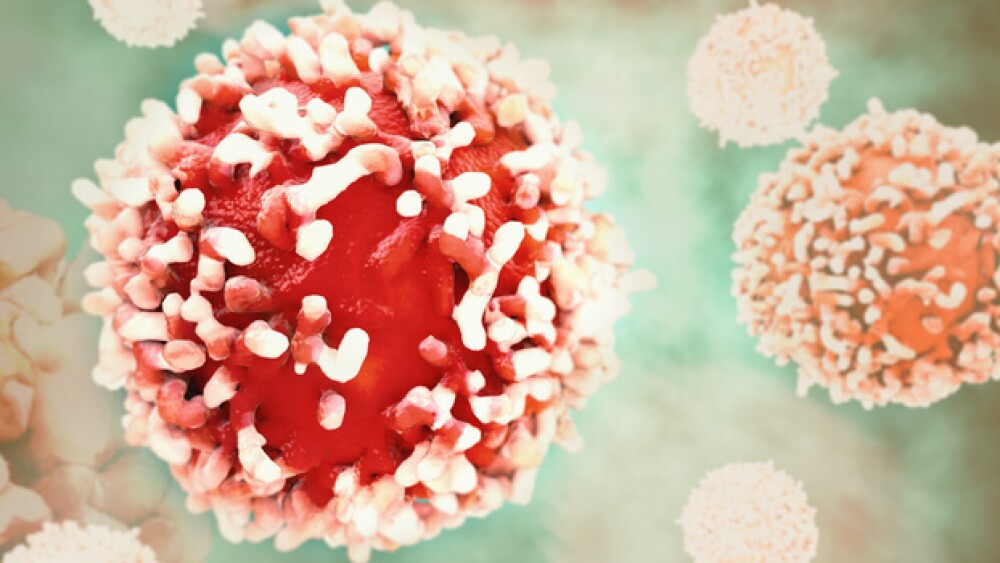Surface Oncology has agreed to grant exclusive worldwide licensing rights to GlaxoSmithKline for the development and commercialization of Surface Oncology’s SRF813, a fully human IgG1 antibody and immunotherapy designed to treat cancer.
Cambridge, Mass.-based biotech Surface Oncology has agreed to grant exclusive worldwide licensing rights to GlaxoSmithKline (GSK) for the development and commercialization of Surface Oncology’s SRF813, a fully human IgG1 antibody and immunotherapy designed to treat cancer.
SRF813 targets PVRIG, or CD112R, which is an inhibitor protein that’s expressed on natural killer and T cells. Preclinical tests show the immune-activating investigational agent shows potential to initiate strong anti-tumor responses and promote immunological memory.
The terms of the agreement state GSK will provide Surface Oncology an upfront payment of $85 million. Surface Oncology will also be eligible to receive an additional $730 million in milestone payments in addition to tiered royalties on global net sales.
“We are extremely pleased to be entering into this agreement with GSK given the strong strategic fit for SRF813 within GSK’s oncology portfolio, including the possibility of pursuing compelling novel clinical combinations,” said Surface Oncology’s Chief Executive Officer Jeff Goater, in a statement. “Furthermore, the economics of the transaction position us well to continue to drive the development of our wholly-owned clinical programs, SRF617 and SRF388, while also advancing SRF114, our CCR8 targeted program.”
Dr. Axel Hoos, GSK’s Senior Vice President and Head of Oncology R&D, said “GSK’s R&D approach focuses on the science of the immune system and I am excited to add a natural killer cell approach, such as SRF813, as it complements our existing programs focused on T cell/adaptive immunity.” He added that the new partnership contributes to the company’s progress in building a pipeline of new oncology treatments with transformational potential for patients in different indications.
“I strongly believe that we are uniquely positioned to maximize the potential of SRF813 for patients, both as monotherapy and in potential combinations with our investigational anti-CD96 and anti-PD1 assets,” Hoos said.
Following news of the agreements, shares in Surface Oncology rose 7% premarket, while GSK rose 2%.
Last month, Surface Oncology announced that its other immunotherapy candidate, SRF388, was granted Fast Track designation by the U.S. Food and Drug Administration (FDA) to treat liver cancer in patients previously treated with standard therapies. The increasing incidence of liver cancer and the serious unmet need for the disease in the U.S. supported the rationale of the designation, which is designed to expedite the review of the drug candidate. Currently, SRF388 features an orphan-drug designation from the FDA for the treatment of hepatocellular carcinoma.
Both next-generation immunotherapies SRF617 and SRF388 have both advanced to combination and expansion stages of ongoing Phase I clinical trials, according to a recent announcement by Surface Oncology. The predefined criteria achieved for advancement in these phases include safety, successful escalation to a biologically relevant dose, target engagement and meaningful pharmacodynamic activity.
In addition to advancing immunotherapy candidates, GSK has recently been busy developing an adjuvanted COVID-19 vaccine candidate with Medicago. In November, the two companies announced they had started a Phase II/III clinical trial of their candidate to evaluate its efficacy, safety, and immunogenicity. Phase I results were encouraging, according to Medicago, prompting initiation of the Phase II/III trial. The Coronavirus-Like Particle COVID-19 vaccine candidate (CoVLP) comprises recombinant spike (S) glycoprotein expressed as virus-like particles (VLPs) that may potentially reduce the risk of COVID-19 infection.
Just this month, however, GSK and Sanofi’s co-developed COVID-19 vaccine candidate was associated with an insufficient immune response in older patients in an early stage trial. These findings have caused a delay in studying the vaccine in a Phase III trial. Due to this delay, the vaccine will unlikely be available before the end of 2021, if it comes out at all.





